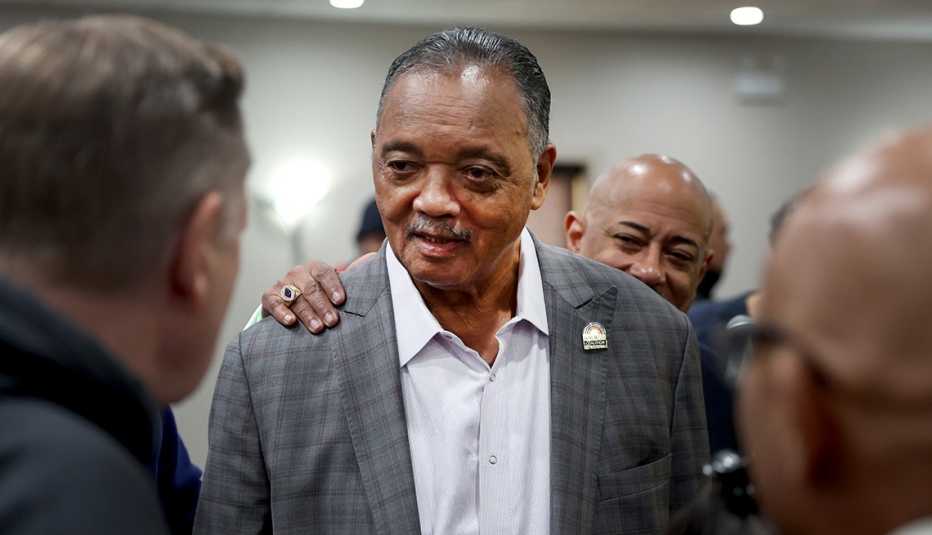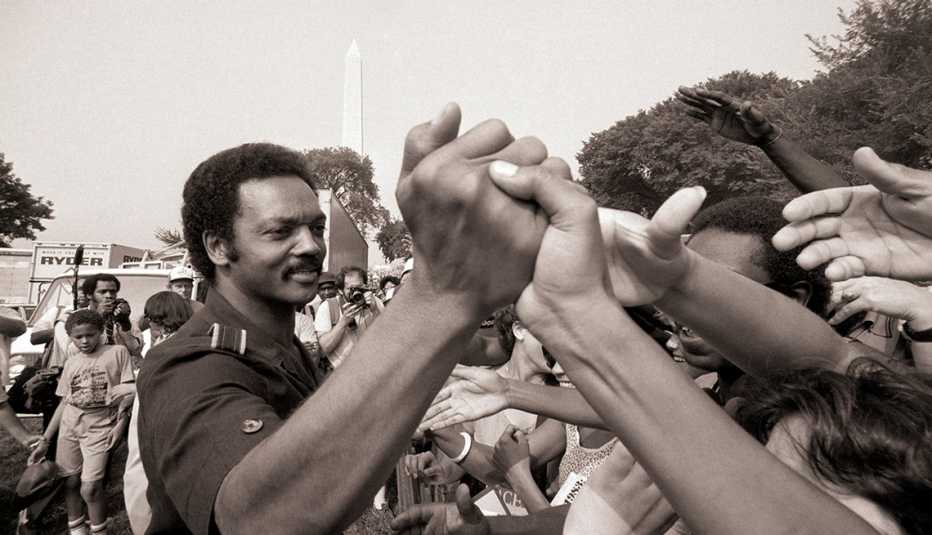AARP Hearing Center


The Rev. Jesse Jackson was present during the 1963 March on Washington for Jobs and Freedom when the Rev. Martin Luther King Jr. delivered his “I Have a Dream” speech. While many have focused on the “dream” part of King’s speech, the following words likely resonated with Jackson: “We can never be satisfied as long as our children are stripped of their adulthood and robbed of their dignity by signs stating ‘For Whites Only.’ ”
The days of legal segregation are “behind us now,” says the 81-year-old Jackson during an interview with AARP about two weeks before the 60th anniversary of the March on Washington. “We’ve made tremendous progress that would not go backwards. I want to move forward.”
Moving forward for Jackson, in part, means stepping down as the head of the Chicago-based Rainbow PUSH Coalition, an organization he founded as a result of mentoring from King. In July, the coalition said Jackson was not retiring; he instead “will pivot” to emeritus status as he passes the baton to the Rev. Frederick Haynes III. Jackson’s decision, the statement said, “is a result of his ongoing journey with Parkinson’s disease.”
Parkinson's is a chronic neurodegenerative disorder that affects movement. Symptoms include quivering hands, shuffling gait, stooped posture as well as cognitive decline.
It’s true that Jackson, who in his heyday stood at a towering 6 feet, 3 inches, is not letting the disease stop him. But it has slowed him.


As the video camera turns on in a room at Loretto Hospital in Chicago, where Jackson had joined striking workers in their final push to settle a contract negotiation, he approaches the screen in his wheelchair. An assistant has wheeled him into the room. Someone else adjusts his mic. Known for his booming voice that has electrified crowds, he is soft-spoken today, and at times hard to hear, but one thing he makes clear: “I have the ability and the will to fight.”
“I'll be with him for a while,” Jackson adds about working alongside Haynes.
“His mind is so sharp that you can’t retire with a mind like that,” Haynes says.
Haynes, 62, has served as the senior pastor of Friendship-West Baptist Church in Dallas for 40 years. “So, in light of that, we continue to benefit from his wisdom, his brilliance, and his prophetic insights,” Haynes says.


































































More From AARP
Bernice King, MLK’s Daughter, Reflects on Legacy
The youngest of Martin Luther King Jr.'s four children, Bernice King, 60, was only 5 months old when more than 250,000 people flooded the National Mall in Washington, D.C., on Aug. 28, 1963. On the 60th anniversary of the historic march, she ponders its impact and relevance.
6 Leaders Who Carry on Martin Luther King Jr.'s Legacy
King, who would have turned 96 this year, and his historic efforts continue to inspire others to champion civil rights issues in new arenas and novel ways. Read about six such people to recognize on Martin Luther King Jr. Day.